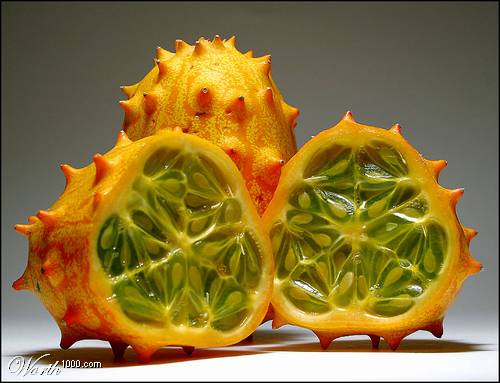 We had, for the first time last night, a rather strange looking dessert: A Kiwano.
We had, for the first time last night, a rather strange looking dessert: A Kiwano.
Also known as the African Horned Cucumber, this horny melon-shaped fruit has a toxic-green coloured flesh, with a surprising taste of bananas. It didn’t really rock my boat (too many seeds to navigate my way around), though Freya found it intriguing enough.
Anyway, the Kiwano (like the Kiwi) is native to New Zealand, and it got me thinking about a possible etymological connection.
In my world, the prefix “ki” is Maori for “hanging in/from a tree”. Then, I reckon “wi” and “wano” are adjectival opposites, “small thing” and “big/ger thing”respectively. Thus we have kiwi, meaning “small thing hanging from a tree”, and kiwano, “bigger thing hanging from a tree”.
Wouldn’t that be top if it were the case?
Sadly, the kiwi(fruit) is native to China, and is often, to the annoyance of the inhabitants of New Zealand, confused with the small, brown, furry bird of the same name. To a New Zealander a kiwi is always the bird, the kiwifruit (or Chinese gooseberry) is the fruit.
